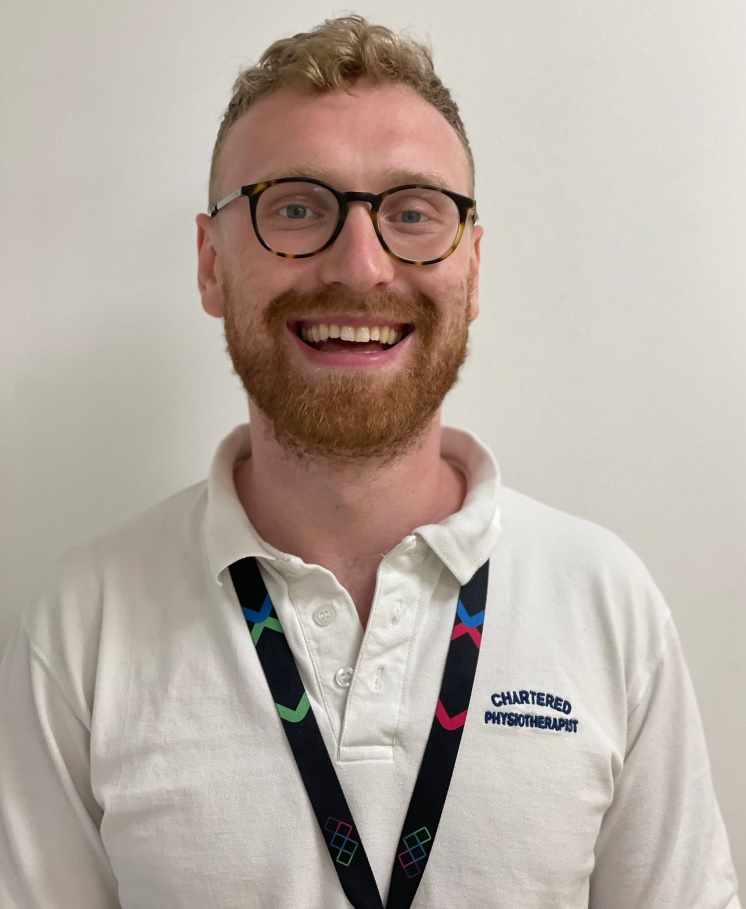 A blog post by Matt Savage
A blog post by Matt Savage
Research itself shows that research activity and involvement within an organisation leads to better patient outcomes – that’s a fact (Boaz et al. 2015).
But research is just for specialists in their area right? There’s no point getting involved too early on in your career as you just want to focus on finding your feet in what is a busy, stressful and hectic NHS - right? Not necessarily.
I and my fellow band 5 physiotherapist, Catherine Hughes, recently had the unique opportunity to complete a part time research rotation, alongside a musculoskeletal out-patient rotation (MSK). Two days a week working under a senior and very experienced clinical academic physiotherapist who’s been involved in research for over 20 years. It started out as a compromise opportunity, as the MSK service could not offer a full rotation due to the department finding its feet again in the new virtual world (thanks COVID). But it’s turned out to be a fantastic opportunity.
Never before had we had the time to engross ourselves in all the training that the research world has to offer – the fundamentals like Good Clinical Practice, research governance and ethics that form the cornerstones of research; but also literature searching, critical appraisal, statistics – and found that this is stuff that is directly applicable to clinical practice.
We were also fortunate enough to get directly involved with multiple research studies (Healthcare Professionals outside of medicine who are doing pre- and post-doc fellowships and PhDs) that are going on at Imperial at the moment.
Our roles were primarily as research assistants, helping develop search strategies, identifying appropriate studies, extracting and cross checking data for scoping and systematic reviews – as well as cleaning survey data and analysing and presenting it for mixed methods work. We also set up a data collection spreadsheet and gained approval to complete a service evaluation within the MSK department at Imperial.
As the rotation progresses, we plan to continue our involvement with these projects as they progress, and start to become more involved with primary data collection from patients/participants themselves.
That all being said, this has come with its challenges! We had both come from areas we were very confident, and starting out doing 2 days research and 3 days virtual MSK clinics felt like going straight back to university. Feeling knackered – I would regularly get home, sit on the sofa, and wake up 3 hours later wondering who I am and where I was.
Not to mention the technical challenges posed by the wonderful but brilliantly complicated tool that is Microsoft Excel, and all the other software we were using on a day to day basis.
And working a desk job! When I started out as a physiotherapist I thought I was choosing a profession where I could be active, on my feet all day and interacting with all sorts of different people – but here I was, sat in the same seat, looking at the same screen, 5 days a week. We’d accidentally fallen into office jobs.
But we’ve really enjoyed it.
It’s been a very positive learning experience, and we’ve had to be flexible and adaptable in the way that we work. We’ve been prioritising day to day clinical caseloads for a long time, but this was something else entirely. And many of the key skills we have learned are directly applicable to clinical practice.
We’ve developed a better awareness of the importance of good quality research, rather than just research, and are now more balanced when regarding the quality of a study.
We’re already applying this in MSK; scoping the evidence for our patients and prescribing treatments with confidence in what we’re saying, knowing that if they do their exercises, they’ll likely get better. And talking the evidence through with my patients has been really helping with getting patient’s buy in, getting them on board and empowering them to do what they need to in order to improve.
It’s also opening doors into future career paths – I for one always liked the idea of lecturing, but was put off by the research element in order to get there – but now I find myself very interested in the academic path. And it’s also a great experience for developing the know-how for future projects and service evaluations in future rotations and senior roles.
Research forms the evidence base for everything that we do, and it’s this evidence that enable us to give our patients the tools they need to get themselves better. We feel so fortunate to have had this unique opportunity to be so closely involved in all kinds of research – and will hopefully come away as much better clinicians as a result.
Reference:
Boaz A, Hanney S, Jones T, Soper B (2015) Does the engagement of clinicians and organisations in research improve healthcare performance: a three-stage review. BMJ Open 5:e009415.
Useful links
Contact us
The CATO Team and Radiographers Incubator work on a Hybrid model, combining days in the office with days working from home – the best way to reach us is by email.
cato@imperial.ac.uk
radresearch@imperial.ac.uk
+44 (0)20 3313 7397

